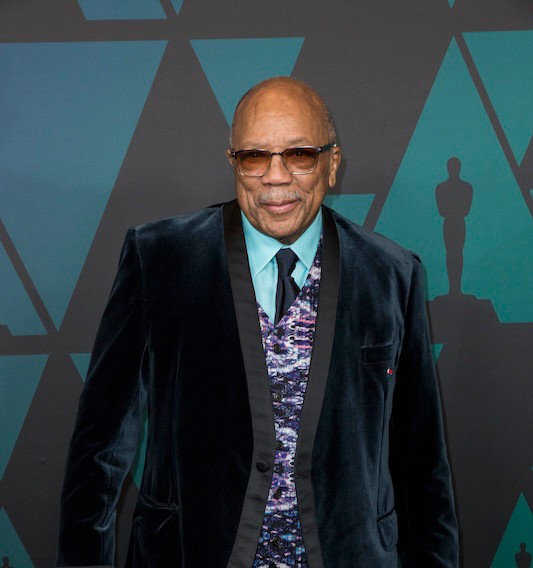By Samantha Ofole-Prince
“Quincy Jones’s artistic genius and relentless creativity made him one of the most influential musical figures of all time,” says Academy President Janet Yang
A prominent figure with an illustrious musical career spanning seven decades, Quincy Jones, the first Black composer to be nominated in the Original Song category for an Oscar, died on Sunday in California at age 91.
A unique force in music and popular culture, he was one of the most powerful forces in American popular music for more than half a century. Beyond his own acclaim as a trumpeter, producer, conductor, composer and arranger, Jones’s inimitable gift to discover the biggest talents of the past half of the century is unprecedented. He composed the soundtracks for “Roots” and “In the Heat of the Night,” organized President Bill Clinton’s first inaugural celebration and oversaw the all-star recording of “We Are the World,” the 1985 charity record for famine relief in Africa.
Jones also mentored and cultivated the careers of young talents, from Michael Jackson, Will Smith to Oprah Winfrey who paid tribute on social media to the icon saying that he ‘discovered her.’
With film credits that include “The Wiz” and “The Color Purple,” he produced and composed an expansive body of work and was the recipient of the Jean Hersholt Humanitarian Award in1994 and also received AAFCA’s inaugural Stanley Kramer Award in 2019.
Jones earned a total of seven Oscar nominations for his work on “In Cold Blood,” “The Wiz” and “The Color Purple,” receiving a Best Picture nomination for the latter.
He was due to receive his first Oscar at the Academy’s Governors Awards event on Sunday, November 17, at the Ray Dolby Ballroom at Ovation Hollywood.
In a statement released in June, Academy President Janet Yang had praised Jones stating, “Quincy Jones’s artistic genius and relentless creativity have made him one of the most influential musical figures of all time.”
The Academy is yet to issue a statement on their plans for a posthumous honor.
Jones’ publicist, Arnold Robinson, says he died Sunday night at his home in the Bel Air section of Los Angeles, surrounded by his family.

